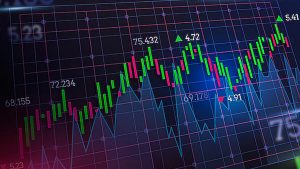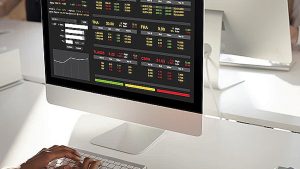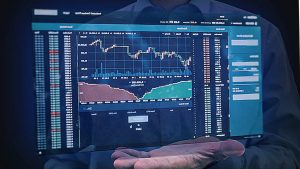Reasons Why Most Forex Traders Fail: The FX market, which sees a daily average trading volume of more than $5 trillion, is the largest financial market in the world.
Although there are many forex traders, relatively few of them are successful. Many traders also lose money, just like investors do in other asset classes. Also, the extremely high levels of leverage offered by the market and the comparatively low margin requirements for currency trading prevent traders from making a lot of low-risk errors. Using borrowed funds to increase the possible return on investments is known as leverage.
Some factors unique to currency trading may lead some traders to assume higher investment returns than the market can reliably deliver or to take on greater risk than they would when trading in other markets. This article examines the reasons why most forex traders fail.
Recommended: Difference Between a Teacher and a Lecturer
Top 8 Reasons Why Most Forex Traders Fail
1. Lack Of Knowledge And Experience: A lot of information and experience is needed to trade currencies. Forex trading necessitates a thorough grasp of the market, including the different variables that influence the value of currencies. Many new traders enter the market without having a complete understanding of how it operates, the various strategies and techniques, or the hazards involved.

Due to this, traders may end up making bad trades and incur heavy losses. In addition, traders who lack experience and knowledge may fall into the trap of overtrading. Overtrading occurs when traders open too many trades, leading to a lack of focus and poor decision-making. This can result in significant losses as traders fail to monitor their positions effectively.
2. Not Maintaining Trading Discipline: Letting emotions dictate trading decisions is the biggest error any trader can make. A successful forex trader will experience numerous little losses as well as a few large profits. Several losses in a row can be emotionally taxing and try a trader’s endurance and self-assurance.

Cutting short wins and allowing losing trades to spiral out of control are both consequences of trying to outperform the market or giving in to fear and greed. Trading within the confines of a well-thought-out trading strategy that supports sustaining trading discipline enables one to overcome emotion.
Recommended: How To Become A Problem Solver: 10 Proven Tips
3. Trading Without a Plan: To succeed, one must first develop and stick to a trading plan, regardless of whether they are trading forex or another asset class. In all forms of trade, the saying “Failing to plan is planning to fail” is accurate. A trading plan is a methodical approach to analyzing and screening currency pairings to ascertain the level of risk you should be willing to accept.

This will enable you to create both long-term and short-term investment goals. The effective trader operates in accordance with a written strategy that contains risk management guidelines and details the anticipated return on investment (ROI). Following a strategic trading plan can help traders avoid some of the most common trading hazards; without a plan, you’re setting yourself up for disastrous circumstances in the forex market.
4. Emotional Trading: Trading can be an emotional rollercoaster. The emotions of traders frequently interfere with their plans which is not supposed to occur.

Fear, greed, and other emotions can cause traders to make impulsive decisions, such as closing a position too early, chasing a trade, or failing to cut losses. Emotion-driven trading can lead to significant losses and can quickly wipe out a trader’s account. That is why it is not advisable to let unrelated emotions dictate your trading selections.
Recommended: Advantages And Disadvantages Of E-banking
5. Failing To Adapt To The Market: For each trade, you should make a plan before the market even starts. The likelihood of severe, unforeseen losses can be greatly reduced by conducting scenario analysis and planning the actions and countermoves for every conceivable market situation.

New opportunities and threats arise as the market changes. Over the long term, no magic solution or “system” can consistently win. The most effective traders adjust to market developments and tweak their techniques to fit them. Competent traders prepare for low-likelihood situations and are rarely caught off guard when they do. They keep ahead of the competition and continually develop fresh, original ways to profit from the changing market through a process of education and adaptation.
6. Learning Through Trial And Error: Trial and error is without a doubt the most expensive approach to learning how to trade the currency markets. Learning how to trade through the mistakes you make is not an efficient approach to discovering the best trading strategies.

As the forex market differs greatly from the equities market, it is likely that rookie traders will suffer losses that will have a devastating effect on their accounts. Using experienced traders’ expertise as a resource will help you become a successful currency trader the best. A formal trade education or a relationship with a mentor who has a distinguished background are two ways to achieve this. Seeing a good trader in action is one of the best methods to hone your skills, especially after you’ve put in your own practice time.
Also see: Problems Facing Agriculture in Africa: 9 Major Challenges and Solutions
7. Having Unrealistic Expectations: Forex trading is not a get-rich-quick program, despite what some people may claim. It takes time to develop the skills necessary to earn money; it’s not a sprint. A constant focus on mastering the techniques involved is necessary for success.

Usually, traders who try to swing for the fences or compel the market to deliver anomalous returns risk more money than the prospective rewards are worth. Giving up risk and money management guidelines meant to minimize market regret is equivalent to letting go of trade discipline in order to gamble on irrational rewards.
8. Poor Risk And Money Management: Developing a strategy is important, but traders should also concentrate on risk management. Some uninformed traders will trade without protection and refrain from utilizing stop losses and similar strategies out of concern that they will be stopped out too early. Successful investors are aware of the exact amount of their cash that is at risk at any given time and are certain that it is reasonable given the anticipated rewards.

Capital preservation becomes increasingly significant as the trading account grows. A trading account can be protected from irrecoverable losses by diversifying its currency pairs and trading tactics, along with its position sizing. Superior traders will divide their funds into distinct risk/return tranches, with only a small percentage of their account being utilized for high-risk transactions and the balance being traded cautiously. Low-probability events and unsuccessful transactions won’t be able to completely destroy a trader’s account if they use this kind of asset allocation approach
See also: Roles of Children in the Family: 7 Important Duties of Children at Home
Conclusion: Many of the same problems that affect investors in other asset classes also plague FX traders. Forex trading is an intricate and complex market that calls for expertise, experience, discipline, risk management, and successful money management techniques. Significant losses and account depletion may result from failing to apply these crucial components. Building ties with other successful forex traders who can impart to you the trading disciplines required by the asset class, including the risk and money management guidelines necessary to trade the forex market, is the simplest approach to avoid some of these problems. Then and only then will you be in a position to formulate the essential strategies and execute trades with return expectations that deter you from taking unneeded risks in exchange for potential gains.

Edeh Samuel Chukwuemeka, ACMC, is a lawyer and a certified mediator/conciliator in Nigeria. He is also a developer with knowledge in various programming languages. Samuel is determined to leverage his skills in technology, SEO, and legal practice to revolutionize the legal profession worldwide by creating web and mobile applications that simplify legal research. Sam is also passionate about educating and providing valuable information to people.